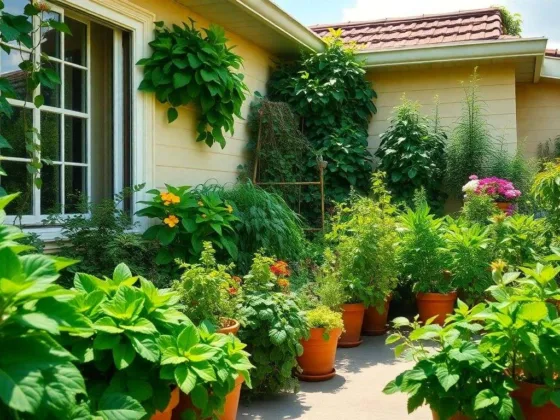Table of Contents Show
Gardening is one of the oldest hobbies on the planet. With a few tools for gardening as a hobby, you can reap great benefits such as mental relaxation. It’s hard to beat gardening for relaxation. Plus, it’s good exercise.

And fresh vegetables and flowers from your yard are healthier and cheaper than store-bought versions. And growing your plants and flowers can help you appreciate the natural environment of your home, neighborhood, and city.
Good mental health and relaxation are necessary parts of life, particularly in an age when everyone seems to be constantly busy and on the go.
Most people know that gardening can be relaxing, but it may come as a surprise to learn that it can also help your overall mental health and quality of life. Here are ways gardening can help relax and improve good mental health.
1. Gardening Promotes an Active Lifestyle
One significant benefit to gardening is an active lifestyle. Research has shown that people who garden are less likely to be obese than those who don’t. It can also positively impact mood, especially among those suffering from depression or stress.
Gardening forces you to get up and move around, improving circulation and promoting muscle activity.
In addition, many gardening tasks use repetitive motions that boost serotonin levels. An active lifestyle helps reduce anxiety and enhance the quality of sleep.
Consequently, the status of your mental health improves. And if you feel good about yourself, then chances are your overall well-being will increase.
If you love growing fruit, vegetables, and herbs but lack the space to keep a garden, you can find spacious properties for sale in Burwood – Australia, conducive to gardening.
You would also want to make your backyard more beautiful with flowers and ornamental plants, which improves positive energy, thus making one relax and feel calm.
2. Gardening Helps You to Connect with Nature
Research has shown that those who garden have lower levels of anxiety and depression. There are several reasons for it, but one is that there’s a sort of ritual that comes with weeding your garden.
It helps you focus on your surroundings and forget about any problems you might be having. Gardening can thus help with relaxation as well as mental health. At its best, gardening can connect us to nature and make us feel like we’re one with our environment.
When one connects with nature, it creates a sense of peace within oneself. Planting seeds and watching them grow into full-fledged plants will also give you a sense of accomplishment, which will boost your self-esteem and confidence.
Happiness and joy also tend to fill the hearts of gardeners with joy without exception.
Read Also:
3. Working in the Garden Can be a Therapeutic Workout
If you’re looking for a form of exercise that also makes you feel relaxed, head out to your garden.
Gardening-related activities such as hauling around bags of soil, digging holes, and planting new seedlings—can be super relaxing and rewarding in terms of physical and mental fitness.
Garden therapy has proven to help people with anxiety disorders and depression and those with high-stress levels due to their jobs or other issues.
Working outside is also a great way to get some vitamin D if you don’t spend much time in direct sunlight during the winter months.
Also, plants tend to embrace their surroundings fully, so being around them will make you more accepting of others. You might even become more patient and understanding towards others after spending time in your garden!
Next time you’re looking for a house to buy, do it with gardening in mind; a yard with plenty of room for trees and bushes is perfect for getting away from it all.
4. Gardening Creates a Positive Emotional Impact
Many people report feeling happier, more relaxed, and more peaceful after spending time in their garden.
Dr. Roger S. Ulrich, an expert on the emotional response to environments, coined a term called bettering spaces to describe settings that improve the moods or emotional states of individuals who spend time in such an environment.
Friendly gardens are a classic example! With natural beauty and a calm environment, your garden can be just what you need to stimulate a wide range of positive emotions such as happiness, joy, pleasure, and contentment.
Remember, plants cannot experience fear or anger, but they can defend themselves from harm through various mechanisms.
Being around nature makes us feel calmer and less stressed. It also helps improve our attention span. These benefits create a tremendous emotional impact for those who spend time in their garden.
Conclusion
Gardens offer a variety of emotional benefits to their owners. Plants can purify the air and reduce stress, can be gentle reminders of childhood memories, and are visually pleasing decorations for private gardens or public parks.
For these reasons, gardening is essential for relaxation and good mental health. There are many ways to integrate landscaping into one’s daily routine to help maintain a healthy lifestyle.
If you feel gardening can help your well-being, make good use of your space. Gardening adds to the list of factors to consider when buying a new home!
![featured image - How to Quickly Control Pests in Your Home [5 Tips]](https://www.dreamlandsdesign.com/wp-content/uploads/2022/04/How-to-Quickly-Control-Pests-in-Your-Home-5-Tips-560x420.jpg)








